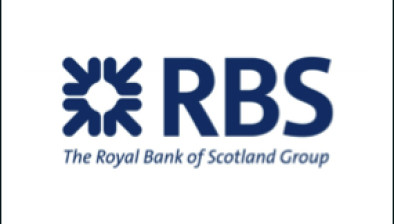RBS: Permanent job placements decline at softest pace for 8 months in September
The downturn in permanent job placements across Scotland eased further in September, according to the latest data from the Royal Bank of Scotland’s Scottish Labour Market Report.

Notably, the latest fall was the softest in the current eight-month sequence of decline and only modest. Meanwhile, temporary billings returned to growth, with the rate of expansion the fastest for a year.
There were reports that some companies had resumed hiring as firms reopened and expanded their capacity following an easing of coronavirus disease 2019 (COVID-19) lockdown measures. That said, the pandemic continued to be cited as a key factor weighing on overall recruitment decisions. At the same time, widespread reports of redundancies led to further rapid increases in both permanent and temporary candidate numbers.
Scottish recruiters signalled a further reduction in the number of permanent placements during September. The rate of reduction was the softest in the current eight-month sequence of decline and only mild, however.
The trend in Scotland contrasted with that seen at the UK level, where permanent staff appointments rose for the second month in a row.
Adjusted for seasonal factors, the Temporary Billings Index registered above the 50.0 no-change mark in September to signal the first rise in temp billings for ten months. Moreover, the rate of expansion was the quickest since September 2019 and sharp. According to panellists, the reopening of businesses amid an easing of coronavirus lockdown measures, as well as efforts to clear backlogs, were the main drivers of growth.
Data covering the UK as a whole also highlighted an uptick in temp billings during September, with the rate of increase broadly similar to that seen in Scotland.
Latest data highlighted a further increase in the supply of permanent candidates across Scotland, extending the current sequence of growth to four months. According to panellists, redundancies linked to the coronavirus pandemic and subsequent lockdown measures had led to greater candidate supply. The rate of increase softened noticeably from the previous survey period, but was still marked.
As has been the case in each month since April, the availability of temporary candidates in Scotland rose during September. Respondents linked the latest uptick to a greater number of job seekers amid COVID-19 related layoffs. Furthermore, the rate of expansion softened only slightly from August and remained rapid overall.
Following marked falls in each of the five prior months, the seasonally adjusted Permanent Salaries Index signalled that starting salaries were broadly stable in September. This was shown by the index registering fractionally below the crucial 50.0 threshold.
Recruitment consultancies across Scotland signalled a further reduction in average hourly pay rates for short-term staff during September. That said, the rate of decline was the softest since April, when the current six-month sequence of wage deflation began, and modest overall.
A seventh successive monthly reduction in demand for permanent staff across Scotland was recorded in September. The respective index rose slightly on the month to signal a softer rate of reduction compared to August, but remained well below the neutral 50.0 level to signal a further marked drop in vacancies nonetheless.
September data highlighted a further fall in demand for temporary staff across Scotland, extending the current sequence of reduction to seven months. The rate of decline was the slowest in the aforementioned sequence and only marginal, however.
Sebastian Burnside, chief economist at RBS, commented: “September survey data highlighted a slightly improved picture for the Scottish labour market. Permanent placements declined at a much softer rate, whilst temporary billings returned to growth and expanded at the quickest pace for a year.
“Although an improvement on the massive drop in hiring during the height of the pandemic, we have not yet seen a recovery by any means, and stricter lockdown measures amid a resurgence of the virus poses a risk to the outlook. Moreover, the UK furlough scheme ends in less than a month, superseded by the less extensive Job Support Scheme. Consequently, there will be further challenges ahead for the Scottish labour market, with the potential for any steps towards a recovery to be lost if job cutting intensifies.”










